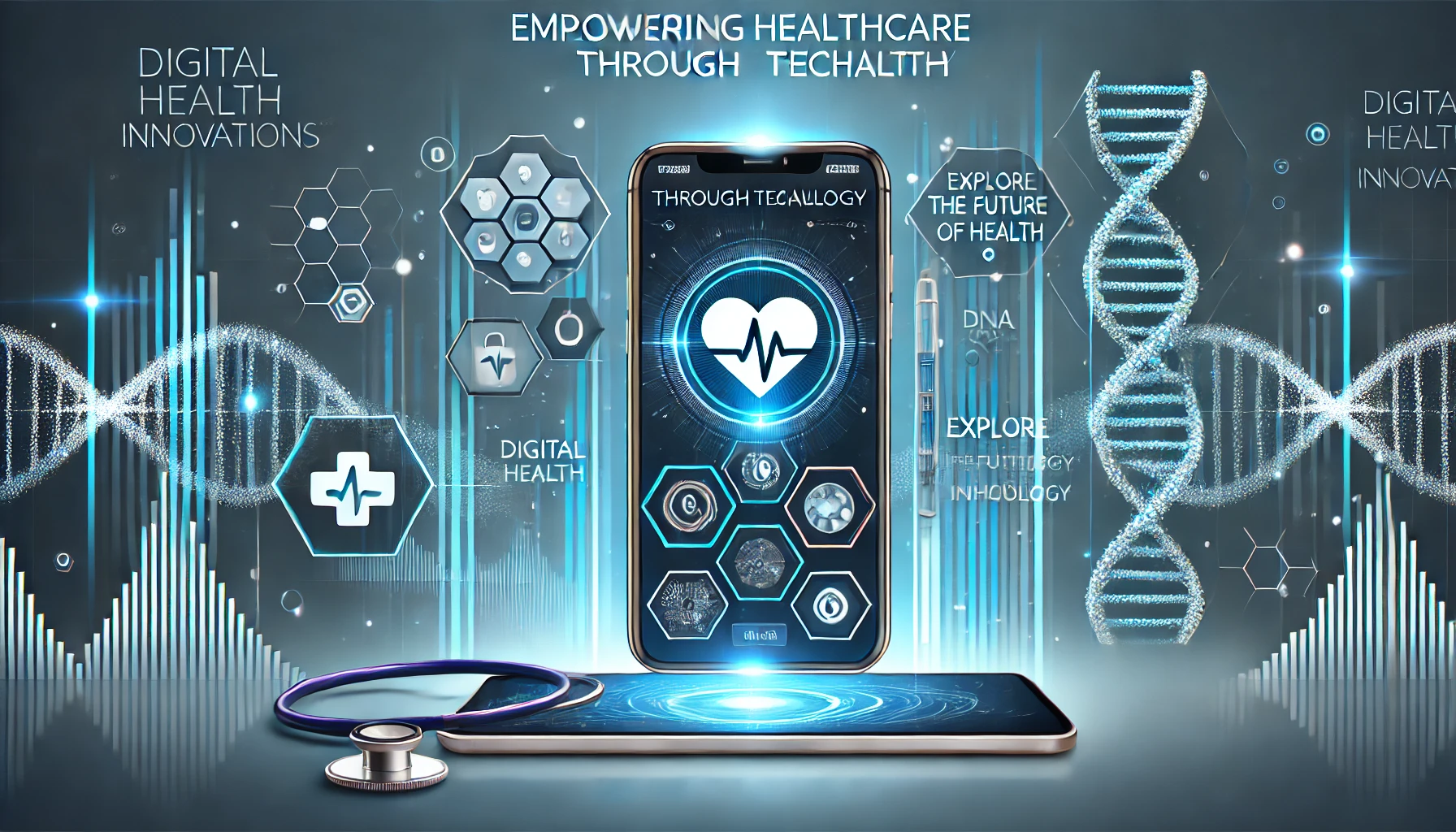In today’s fast-paced world, digital health innovations are driving a revolutionary shift in the healthcare sector. From wearable devices to artificial intelligence (AI)-powered diagnostics, these innovations are not only enhancing patient care but also enabling medical professionals to deliver precise, timely interventions. The integration of advanced technology in healthcare is more than a trend—it is the cornerstone of a smarter, more efficient future.
What Are Digital Health Innovations?
Digital health innovations encompass technological advancements that streamline healthcare delivery and improve patient outcomes. These include telemedicine platforms, AI-driven tools, wearable technology, health apps, and data-driven decision-making systems. By leveraging the power of digital tools, healthcare providers are overcoming traditional barriers to care, such as geographical distances, resource limitations, and inefficiencies in communication.
The Role of AI in Digital Health
Artificial intelligence has emerged as a game-changer in digital health. Machine learning algorithms can analyze complex datasets to predict patient conditions, personalize treatment plans, and even assist in early diagnosis. For example, AI tools are now capable of detecting diseases like cancer and diabetes at their nascent stages, significantly improving survival rates. Furthermore, AI chatbots offer 24/7 patient support, enhancing accessibility and efficiency.
Telemedicine: Revolutionizing Accessibility
Telemedicine platforms have brought healthcare to the fingertips of millions. Whether it’s a video consultation with a specialist or remote monitoring of chronic conditions, telemedicine bridges the gap between patients and healthcare providers. Especially during the COVID-19 pandemic, telemedicine proved indispensable, ensuring continuity of care even under challenging circumstances.
Wearable Technology for Health Monitoring
Wearable devices, like smartwatches and fitness trackers, have redefined how individuals manage their health. These gadgets monitor metrics such as heart rate, sleep patterns, and activity levels, empowering users to make informed lifestyle choices. Advanced wearables can even alert users and their doctors to potential health risks, acting as early warning systems for conditions like arrhythmias or high blood pressure.
Health Apps and Their Impact
Mobile health apps have become essential tools for both patients and practitioners. From tracking medication schedules to providing mental health support, these apps cater to a diverse array of needs. Some apps incorporate AI-driven insights, offering personalized health advice based on user data. Others connect patients with healthcare providers, fostering seamless communication and care coordination.
Big Data in Healthcare: Transforming Insights
Big data analytics is revolutionizing how medical decisions are made. By aggregating and analyzing vast amounts of patient data, healthcare providers can identify trends, predict outbreaks, and optimize resource allocation. Big data also supports research efforts, accelerating the development of new treatments and medications.
Blockchain Technology in Digital Health
Blockchain ensures data security and transparency in healthcare systems. By creating immutable records of patient information, blockchain reduces the risk of breaches and unauthorized access. Additionally, it streamlines data sharing among providers, fostering collaboration while maintaining privacy.
The Rise of Personalized Medicine
Personalized medicine tailors treatments to individual genetic, environmental, and lifestyle factors. Digital health innovations enable this approach by leveraging genomics and advanced diagnostic tools. As a result, patients receive treatments that are more effective and have fewer side effects.
The Integration of IoT in Healthcare
The Internet of Things (IoT) has found significant applications in healthcare, connecting devices to create smarter systems. IoT-enabled devices, such as smart infusion pumps and connected inhalers, ensure accurate medication delivery. They also provide real-time data to healthcare providers, enabling timely interventions.
Challenges Facing Digital Health Innovations
Despite their promise, digital health innovations face challenges, including:
- Data Privacy Concerns: Safeguarding sensitive health data remains a priority.
- Interoperability Issues: Ensuring that diverse systems and devices work seamlessly together.
- High Costs: Affordability can be a barrier to widespread adoption.
- Digital Literacy: Patients and providers need adequate training to utilize these technologies effectively.
How Digital Health Innovations Improve Patient Outcomes
Through real-time monitoring, early diagnosis, and personalized care, digital health tools significantly enhance patient outcomes. They reduce hospital readmissions, enable proactive interventions, and empower patients to take an active role in their health journey.
The Global Impact of Digital Health Innovations
Around the globe, digital health is bridging the gap between urban and rural healthcare systems. Low-resource areas benefit from telemedicine, mobile clinics equipped with AI diagnostics, and cost-effective wearables. This democratization of care ensures that quality healthcare is no longer confined to privileged regions.
The Future of Digital Health Innovations
The future of digital health is both exciting and limitless. Emerging trends such as virtual reality for surgical training, AI-powered robotic surgeries, and advanced bioprinting are paving the way for unparalleled advancements. With continued investment and innovation, the healthcare industry is poised to achieve remarkable breakthroughs.
FAQs
What is the importance of digital health innovations?
Digital health innovations improve healthcare accessibility, enhance patient outcomes, and streamline medical processes using technology like AI, wearables, and telemedicine.
How does AI help in healthcare?
AI analyzes complex data, assists in early disease detection, personalizes treatments, and provides 24/7 patient support through chatbots and predictive algorithms.
What are the benefits of telemedicine?
Telemedicine increases accessibility, reduces travel time for patients, and ensures consistent care, especially during emergencies like the COVID-19 pandemic.
How does wearable technology aid in healthcare?
Wearable devices track health metrics, detect anomalies, and empower users to manage their health proactively by sharing data with healthcare providers.
What role does blockchain play in healthcare?
Blockchain secures patient data, ensures transparency, and streamlines data sharing while maintaining privacy and integrity.
What challenges do digital health innovations face?
Key challenges include data privacy issues, high costs, system interoperability, and the need for improved digital literacy.
Inbound Links Suggestions:
- Explore our guide on AI in Healthcare.
- Learn about the benefits of Telemedicine for Chronic Conditions.



